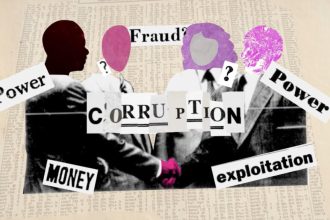The Nigerian singer Fela Kuti once sang and said that those who steal using the pen steal more than those who use the gun. I agree with his analogy. Although this statement brought him trouble, it is one we should pay close attention to.
A government that fails to deliver to its citizens will struggle politically. Let us all fight corruption to ensure the success of government programs like PDM, UPE, road construction, seed schools, etc. Corruption can indeed lead to political instability. Let’s resist corrupt individuals.
Uganda has reasonable laws in place to combat corruption, particularly the Anti-Corruption Act of 2009 and the Penal Code, among other legislations aimed at curbing this vice.
With additional laws such as the Whistleblowers Act protecting those who report corruption-related information, there is increasingly less room for corrupt behavior in Uganda. Those with intentions to loot state resources should be aware of these serious criminal statutes in place.
Just like in George Orwell’s dystopian novel “1984,” where Big Brother monitors every corner of the house through microphones, cameras, and television screens, Uganda may need a similar level of vigilance to combat corruption effectively. About 30% of Uganda’s budget allegedly ends up in the hands of corrupt individuals, undermining the country’s development agenda.
Organizations tasked with fighting corruption in Uganda should focus on serious sensitization through continuous media campaigns, radio programs, and outreach to places where corrupt individuals spend ill-gotten gains, such as schools and drinking spots. The Inspectorate of Government (IGG) is employing techniques like lifestyle audits, championed by Hon. Betty Namisango, the Chief Ombudsman.
I am also aware of legal provisions that uphold the innocence of all accused persons in criminal matters, particularly Article 28(3)(a). This cornerstone of fair trial states that an accused person is innocent until proven guilty, placing the burden of proof on the state.
Corruption, if left unchecked, can cripple service delivery, which is the primary function of government. A government that fails to fulfill its promises to its citizens will struggle to maintain legitimacy.
In the Bible, when Jesus was hungry and sought figs from a fig tree, finding none, he cursed it. Similarly, a government that fails to provide for its citizens politically cripples itself.
The essence of government is to serve the people, and corrupt practices undermine this function. The church, cultural institutions, and every Ugandan have a duty to support the government’s efforts to suppress corruption.
The Anti-Corruption Act, the cornerstone legislation against corruption, now applies even to NGOs, churches, and private workplaces. Let us be vigilant and serve our people instead of robbing them.
No culture teaches people to steal; instead, our culture teaches us to refrain from taking what does not belong to us. As we enter offices, let us align ourselves with our cultural values, knowing that government networks against corruption are vigilant.
The writer is a researcher from Mbale. Tel: 0782231577.




















